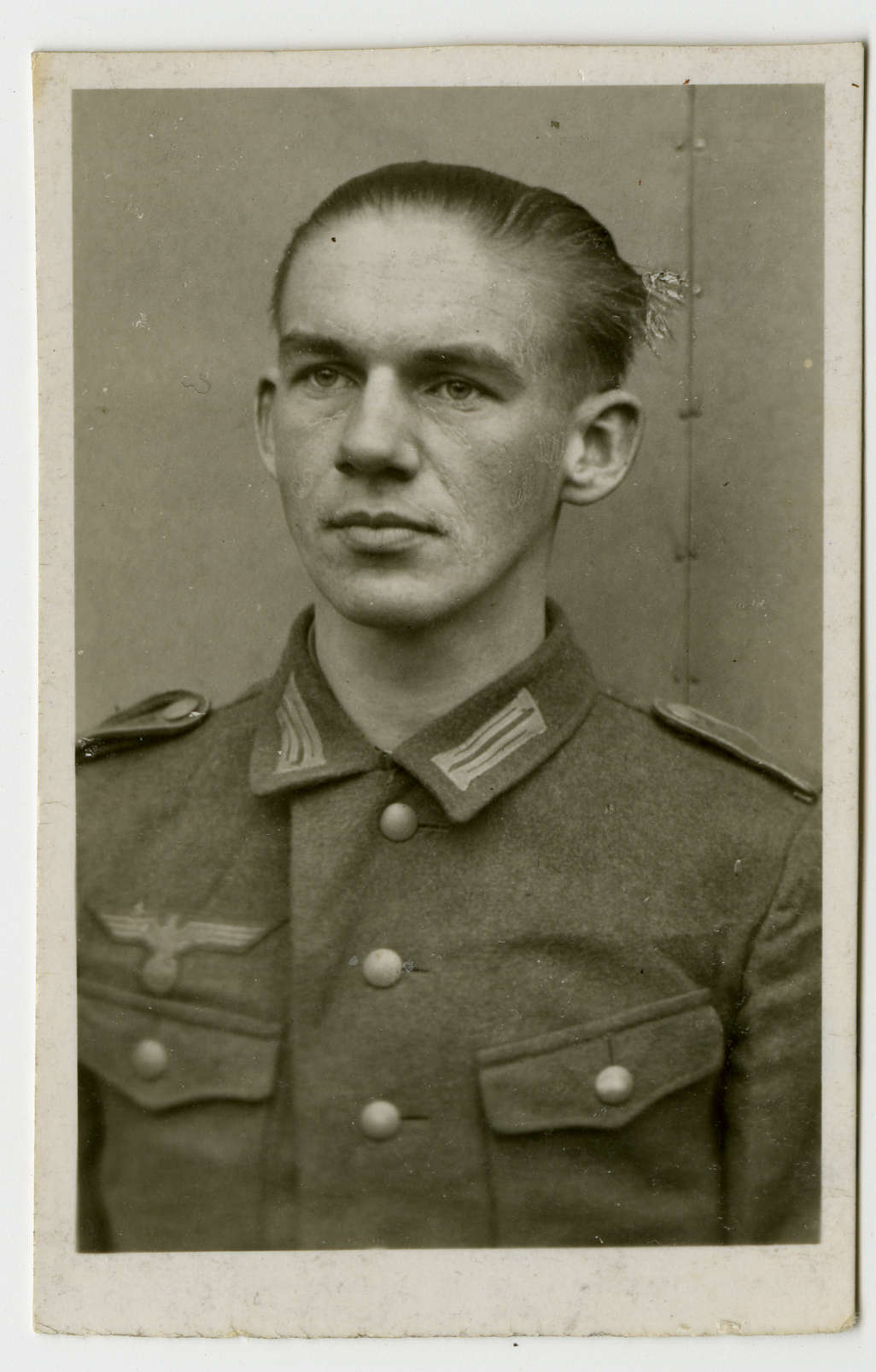
Kalju Ahven
Kalju Ahven (11 IX 1921 – 26 VII 1946) was a poet.
Ahven was born as the son of the accountant of Räpina paper mill. From 1929–1935 he studied at Räpina primary school, from 1935–1939 at Räpina horticultural secondary school and from 1942–1943 at Tartu Teachers’ Seminary. From March 1943, he was in the service of the German army at Tartu military hospital.
In February 1944, Kalju Ahven was recruited to combat service and participated in the retreat of Germans from Tartu through Saaremaa Island to Danzig (now Gdansk in Poland). During a military trek in 1945, Ahven injured his leg. He received treatment at a field hospital and at Bad Elster sanatorium. Later he was in prisoner-of-war camps in Denmark and in Holstein, Germany. The hard living conditions did not allow him to recover from tuberculosis, and he died as a prisoner of war in Lübeck. Ahven is buried in Vorwerk cemetery in Lübeck.
Ahven started writing verses in his schoolyears, but the publication of his poems began in emigre Estonian press after his death. Otto Alexander Webermann, one of Ahven’s companions in the prisoner-of-war camp, collected the preserved manuscripts and wrote a doctoral thesis on them, Kalju Ahven. Leben und Werk eines estnischen Dichters der Gegenwart (Göttingen, 1951) and issued the posthumous poetry collection Kas mäletad? (‘Do You Remember?’, 1956).
The poetry collection includes poems in both literary Estonian and the Võru dialect – memories of home, motifs of nature and love. The poems are melancholy and follow the classical verse forms characteristic of older Estonian poetry.
L. P. (Translated by I. A.)
Books in Estonian
Poetry
Kas mäletad? Luuletusi 1939–1946. Stockholm: Vaba Eesti, 1956, 96 lk.
Kolm Ahvenat: Kalju, Heino, Lembitu luulet. Tallinn: E. Ahven, 2002, 204 lk.



